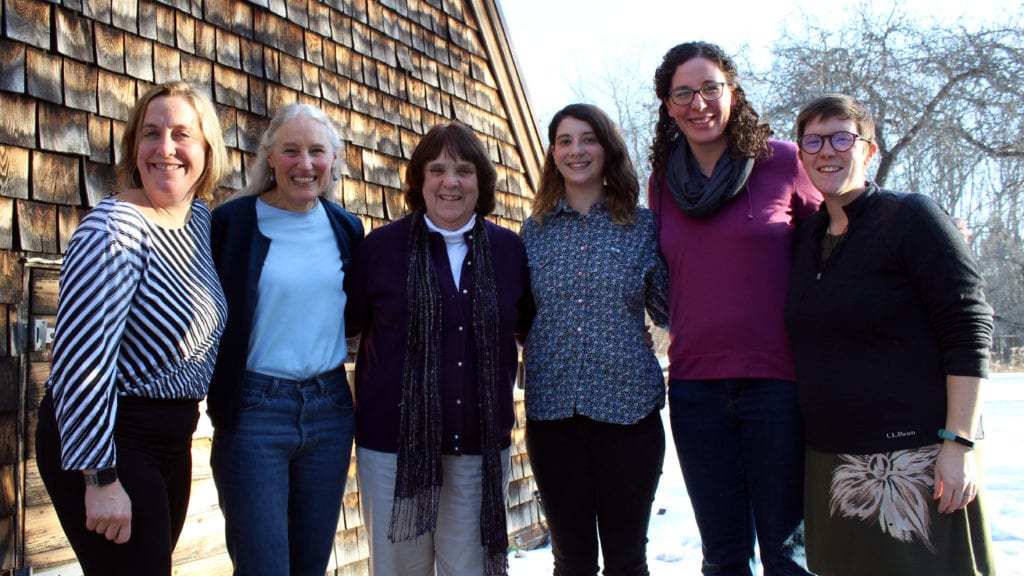
This coming Monday, February 11, is the International Day of Women & Girls in Science — a day established by the United Nations to “support and promote the access of women and girls and their participation in science, technology, engineering and mathematics education, training and research activities at all levels.”
At Maine Audubon, science is at the heart of what we do. We are fortunate to be led in this work by many accomplished women, who compose our entire Conservation team and many of our environmental education staff. Leadership by women is in our DNA, in fact — in the late 1800’s, women led the movement opposing the commercial trade in bird feathers, organizing against industries that were killing 5 million birds a year and shifting the fashion norms that made such hats profitable. Their efforts ultimately led to the creation of the Audubon Society.
In celebration of the International Day of Women & Girls in Science, we’ve asked Maine Audubon’s own Women in Science to share some insights about their experiences learning and working in scientific fields, their reflections on how things continue to change for women and girls in science, and their advice for the next generation. Their responses are below.
Additionally, on Monday, February 11, several of our staff will be participating in a special forum we’ve helped organize at King Middle School. About 80 students will gather to hear from a panel of women scientists, learning about the panelists’ unique paths, experiences, and insights. Panelists will include Maine Audubon biologist Sarah Haggerty, Maine Department of Inland Fisheries & Wildlife biologist Amanda Shearin, and Portland Water District water resource specialist Kirsten Ness. The conversation will be facilitated by Maine Audubon educator Linda Woodard.
Taking time to reflect on these topics is valuable in its own right, but it’s especially important in light of ongoing challenges faced by women and girls in science around the world — from widespread sexual harassment to outright professional sabotage. Unsurprisingly given this climate, while women earn well over half of all bachelor’s, master’s, and doctorate degrees, they constitute only about a third of all degrees earned in STEM fields. That inequity is even more pronounced among women of color.
With any luck, the focus on these issues generated by global events like the International Day of Women & Girls in Science will open the door ever wider for women and girls interested in pursuing education and careers in scientific fields. At Maine Audubon, we know firsthand what a good thing that would be.
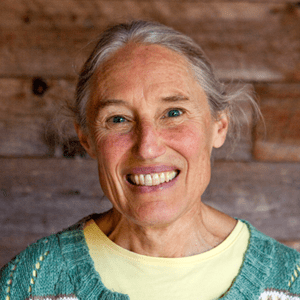
Sally Stockwell, Director of Conservation
- Bachelor’s of Science in Biology
- Master’s of Science in Wildlife Management
- Ph.D. in Wildlife Ecology
What is an early experience that helped ignite your interest in science?
In junior high, I attended a summer program at the Science Museum of St. Paul where we got to collect, measure, and band birds with mist nets. Seeing those birds up close — especially the feisty Rose-breasted Grosbeak — was a pivotal moment for me. In high school, for my senior project I spent three weeks circumnavigating Glacier Bay in southeast Alaska by kayak. I chose to study eskers (sinuous piles of sand and gravel deposited in rivers that run underneath glacial ice), and ended up trekking across recently exposed rock and gravel, scrambling through devil’s club, and standing underneath giant Sitka spruce noting all the plants I saw. That was my first introduction to field science — before that, I never knew you could actually study outside. I was hooked for life.
What are some of the obstacles you faced as you pursued an education and a career in science?
On that same trip, I did a creative writing project where I recorded my observations about our surroundings. We had to present the results of our projects to a panel of teachers when we returned. After I shared some of my writings, several teachers told me I should pursue English and writing in college. I was discouraged; I liked writing, but I wanted to be a scientist! Nobody told me I should or could be a scientist. Early in my career, when attending professional meetings or conferences, I frequently found myself the only woman in the room. Sometimes it was fine; other times it was uncomfortable or even offensive. I definitely felt like I was an outsider, not part of the “old boys network.” I couldn’t talk hunting and fishing with them, I didn’t like the crass jokes, and I was sometimes ignored when I spoke, or someone else would pick up my idea and then share it as his own.
What suggestions do you have for girls who may be thinking about pursuing an interest in science?
Go for it! Follow your passion, and dream big. In science, women are no longer viewed as an anomaly. Most of the time we are welcomed and respected both professionally and personally. Some women are finally starting to move into significant leadership positions. In addition to being professors, they are researchers, field biologists, statistical analysts, Executive Directors of nonprofits, and more. A majority of our seasonal interns and biologists at Maine Audubon are women. There are big problems ahead of us, and we need people who are smart, committed, caring, and dynamic to help us solve them. Join us!
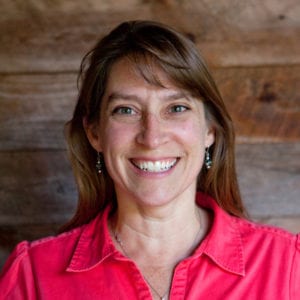 Sarah Haggerty, Conservation Biologist & GIS Manager
Sarah Haggerty, Conservation Biologist & GIS Manager
- Bachelor’s in Biology
- Master’s in Wildlife and Fisheries Conservation
What is an early experience that helped ignite your interest in science?
My dad was a high school science teacher, so he brought home lots of interesting things. I remember spending hours playing with the microscope we had at home, collecting rocks and “bugs” and leaves. Having a garden growing up was probably a big piece of it, and we were always collecting tadpoles and salamanders and frogs and setting up terraria to house them.
What are some of the obstacles you faced as you pursued an education and a career in science?
I was constantly told I had only gotten my job because I was a woman and they were trying to fill a quota (even though I was always significantly more qualified than my male counterparts). Not having female role models definitely makes you question your choices and whether you’re “normal” in wanting to pursue science.
Can you describe any positive changes you’ve observed with regard to women in science over the course of your career?
Seeing more women in higher positions! Whether it’s in the sciences or in politics or in business, it makes a huge difference for women and girls to have others to follow. The glass ceiling is still there, but there are more of us pressed up against it now.
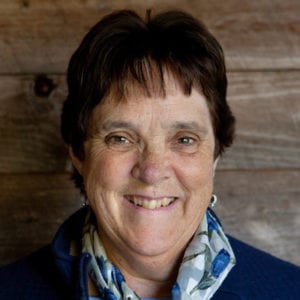 Linda Woodard, Scarborough Marsh Director & Educator
Linda Woodard, Scarborough Marsh Director & Educator
- Associate’s of Science in Animal Medical Technology
- Bachelor’s of Science in Biology
- Master’s in Instructional Leadership
- Adjunct Professor at USM in the Environmental Studies Department
What is an early experience that helped ignite your interest in science?
My family loved the outdoors. I have been told I started camping when I was two months old. Because of this love of nature, I started wanting to know “why.” I started asking lots of questions. My mother would joke with me about how I always would ask why something was this way or that. My parents made sure I found those answers. They took me places like zoos and nature centers, and gave me magazines like Ranger Rick. I could not get enough.
What are some of the obstacles you faced as you pursued an education and a career in science?
I started out as a high school Biology teacher. Many schools just did not have women as science teachers, so I was unusual. Most departments were entirely male-dominated. When I started teaching, I noticed that a lot of girls did not really try in science. They felt they were not supposed to be good in it, and as a result, they were not.
What suggestions do you have for girls who may be thinking about pursuing an interest in science?
Try it out. Job shadow as many different avenues in science as you can — out in the field, in the lab, and others. Is active research for you? Or sitting and observing? Maybe it’s analyzing data? Anyone can do science. It does not matter your gender or background. You can do it as your work or as a hobby. There are so many opportunities to go out and be part of scientific research even if it’s not your official job. You can use eBird or iNaturalist, participate in a snow pack study, and so much more.

Annica McGuirk, Conservation Associate
- Bachelor’s of Science in Ecology
- Maine Master Naturalist certification (anticipated, Spring 2019)
What is an early experience that helped ignite your interest in science?
I spent a lot of time exploring streams as a kid, and have always had an interest in water ecology/ecosystems. I really got my feet wet (ha!) in high school as part of our Ecology Club. We went out twice a year to monitor a stream in central Arkansas for water quality as part of a state stream adoption program. This ultimately led me to want to study ecology.
What are some of the obstacles you faced as you pursued an education and a career in science?
A formal education is expensive! Especially when you move 2,000 miles to attend a private college in rural Maine. The courses I took and the connections I made in school have served me well as I sought a deeper career in conservation. It hasn’t all been smooth sailing, though. I’ve had to work a variety of positions in order to get to where I am today. During those times that I was working to live instead of working towards my career goals, I really focused any additional energy on volunteering the skills and education I had in order to grow myself and keep working towards those career aspirations.
What suggestions do you have for girls who may be thinking about pursuing an interest in science?
Do it! Find a community organization to volunteer with and hone your interests. As you pursue your career, never stop learning and exposing yourself to new ideas.
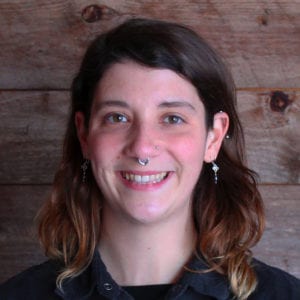 Catherine Griset, Youth Programs Manager
Catherine Griset, Youth Programs Manager
- Bachelor’s in Environmental Studies, with a minor in Wildlife Biology
- Master’s of Science in Ecological Teaching and Learning
What is an early experience that helped ignite your interest in science?
Exploring with my older brother in the woods behind my home as a young child sparked my endless curiosity for the natural world. Being encouraged to ask questions, I began to think bigger picture about the life outside my door. In high school, science classes were my favorites. Initially I thought my non-mathematical brain wasn’t cut out for a career in the sciences. Thankfully, over time, a broader exposure to all that science is and can be ended up shifting this mindset.
Can you describe any positive changes you’ve observed with regard to women in science over the course of your career?
I’ve seen the image of science as something done only by men in white lab coats fading. Science is applicable, varied, and can be done by anyone! As an environmental educator, I spend my time helping students develop skills that are foundational to science – curiosity, observation, care, empathy, and critical thinking. By helping students build these connections, they are better poised to take on the sciences themselves with excitement, motivation, and an understanding of our role as humans in this system.
What suggestions do you have for girls who may be thinking about pursuing an interest in science?
The world needs people to care about Earth – so if you care about science or studying the natural world, go all in!
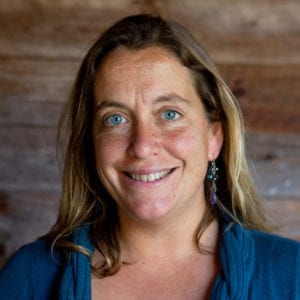 Laura Minich Zitske, Coastal Birds Project Director
Laura Minich Zitske, Coastal Birds Project Director
- Bachelor’s in Biology, with a Geology minor
- Master’s of Science in Biology
What is an early experience that helped ignite your interest in science?
I’ve always loved the natural world, and wanted to be a ‘rock scientist’ before I knew what geology was! A turning point for me was doing an independent project on birds in seventh grade. What started out as me identifying birds at the backyard feeder culminated with me going to Chincoteague National Wildlife Refuge with my parents and fully bird-nerding out. My parents were amazed I knew birds we’d never seen before just by studying bird books. Despite not having the best grades in my class, that year I was awarded “science student of the year.” Being singled out like that was a huge confidence boost.
What is your favorite part about your work at Maine Audubon?
Where do I start? I get to go to beautiful beaches and study birds and work with fantastic people. One thing that always makes me feel incredibly grateful for my job is when I am watching Piping Plover parents tend to their chicks on the beach. Watching them communicate with each other with those adorable fluffy chicks running around acting silly is enough to melt the coldest heart.
What suggestions do you have for girls who may be thinking about pursuing an interest in science?
Be persistent. Be creative. Sometimes an opportunity arises that is not EXACTLY what you want — whether it’s school or a job — but it still may be worth following. I’ve gained tremendous skills and experience from things a bit outside my field. Also, don’t listen to the haters. Listen to legitimate criticism and use it to learn and grow, but ignore anything and anyone that makes you feel inadequate. (This is a good life lesson regardless of your field!)
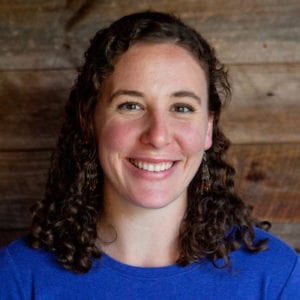 Molly Woodring, Early Childhood Education Program Manager
Molly Woodring, Early Childhood Education Program Manager
- Bachelor’s of Science in Biology
- Master’s of Education in Curriculum and Instruction, with a focus on science education
What is an early experience that helped ignite your interest in science?
I remember realizing as a young child that many of my “what-ifs” and “I wonders” fell under the big heading of “science.” Even better, it seemed like I could get away with certain things in the name of scientific exploration that would otherwise be considered mischief! In middle school, I was lucky enough to have a teacher who got me started reading books by Jane Goodall and Rachel Carson. I don’t remember much of what we studied in class that year, but I remember being captivated by In the Shadow of Man. I grew up spending lots of time in nature — watching birds in my backyard, digging for worms in the garden, exploring tidepools, and camping, hiking, and fishing with my family. I also cared a great deal about the environment and was a fierce “Captain Planet” devotee.
Can you describe any positive changes you’ve observed with regard to women in science over the course of your career?
The stories we hear and the role models we are exposed to are hugely influential. That’s why I’m so glad that there’s been more of an effort in recent years to tell and elevate the stories of women in science, and especially women of color.
What suggestions do you have for girls who may be thinking about pursuing an interest in science?
I think the biggest thing to keep in mind is that there is not just one way to be a scientist. It’s a huge field with so much to study, and so much left to learn! When you hear about researchers who have devoted decades of their lives to one species of ant, how could there not be a niche for everyone? I also think that we all have a responsibility to attain a certain degree of scientific literacy as a part of being good global citizens. It’s not just about content knowledge — science is about thinking critically, asking questions, evaluating sources, and seeking answers to those questions.
